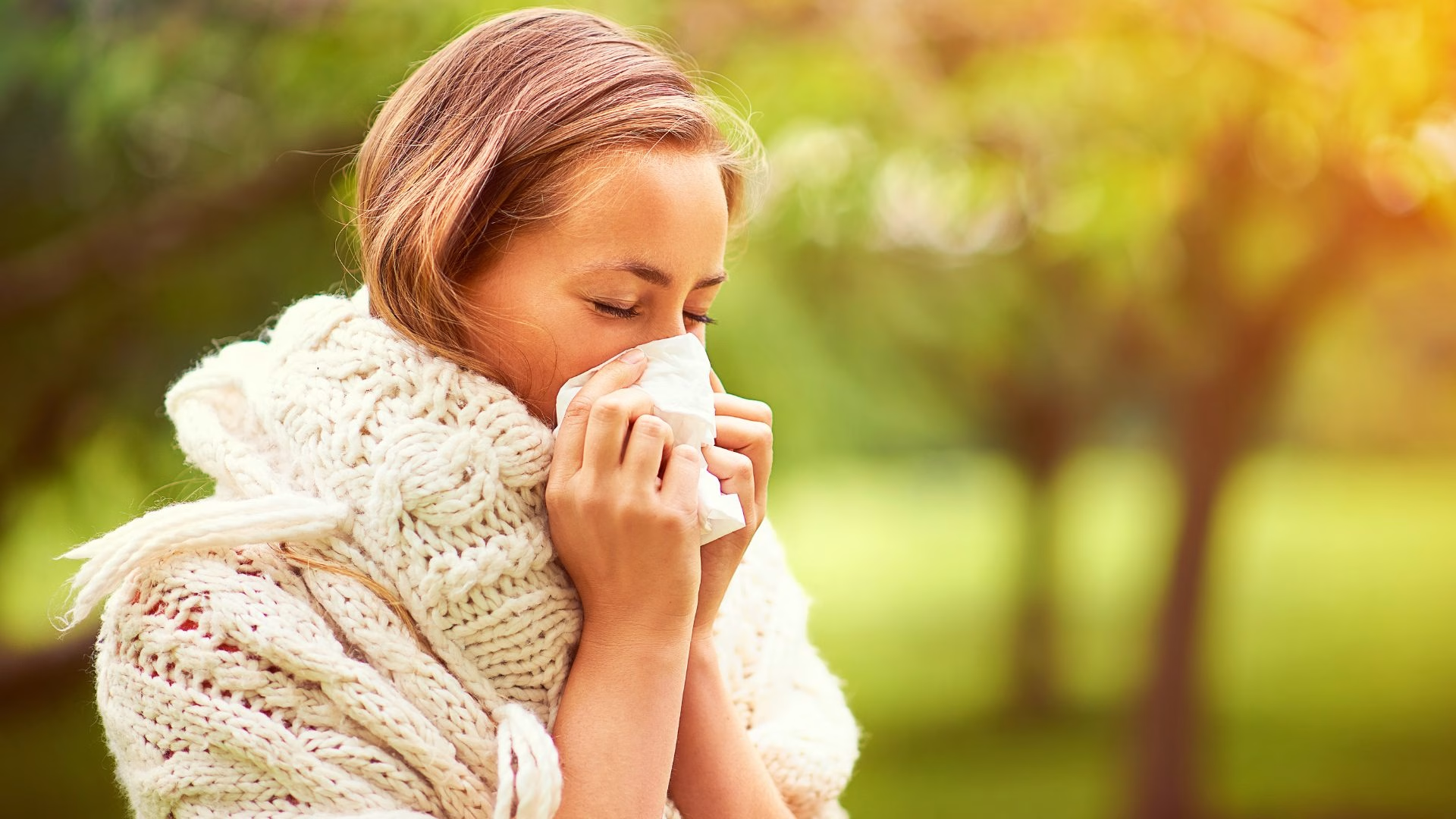
As the leaves change color and the air turns crisp, many people look forward to the beauty of fall. However, autumn can also bring many uncomfortable symptoms for those who suffer from seasonal allergies. Pollen, mold, and dust are common allergens that can wreak havoc on your respiratory system during this time of year. At AFC Urgent Care Nanuet, we understand the challenges of managing fall allergies and are here to provide you with the information and care you need to enjoy the season symptom-free.
Common Fall Allergens
1. Ragweed Pollen
Ragweed is one of the most common culprits of fall allergies. This plant releases pollen from late summer through the fall, causing symptoms such as sneezing, runny nose, and itchy eyes.
2. Mold Spores
Mold thrives in damp, decaying leaves and other organic matter accumulating during the fall. As temperatures drop and humidity levels fluctuate, mold spores can become airborne, triggering allergic reactions.
3. Dust Mites
While dust mites are present year-round, they can become more problematic in the fall when homes are sealed to keep out the cold. Dust mites thrive in warm, indoor environments and can cause symptoms like sneezing, coughing, and wheezing.
Symptoms of Fall Allergies
Fall allergy symptoms are similar to those experienced during other seasons but may be exacerbated by the specific allergens prevalent in autumn:
- Sneezing and Runny Nose: Persistent sneezing and a runny or stuffy nose are common signs of fall allergies.
- Itchy Eyes, Nose, and Throat: Allergens can cause itching in the eyes, nose, and throat, leading to significant discomfort.
- Watery Eyes: Excessive tearing is a typical response to airborne allergens like pollen and mold spores.
- Coughing and Wheezing: Allergens can irritate the respiratory system, leading to coughing and wheezing.
- Fatigue: Dealing with allergy symptoms can be exhausting, leading to a general sense of tiredness.
Tips for Managing Fall Allergies
Managing fall allergies involves a combination of preventive measures and treatments to reduce exposure to allergens and alleviate symptoms. Here are some tips to help you navigate fall allergies:
1. Monitor Pollen Levels
Keep an eye on daily pollen counts in your area, which can be found on weather websites or mobile apps. On days when pollen levels are high, try to stay indoors, especially during peak hours (mid-morning to early afternoon).
2. Keep Windows Closed
Keep windows and doors closed during the fall months to prevent pollen and mold spores from entering your home. Use air conditioning or air purifiers with HEPA filters to clean indoor air.
3. Wear a Mask Outdoors
If you need to spend time outdoors, especially during activities like raking leaves or gardening, wearing a mask can help reduce your exposure to allergens.
4. Shower and Change Clothes
After spending time outside, shower and change into clean clothes to remove pollen and other allergens from your skin and hair. This can help reduce the amount of allergens in your home.
5. Use Allergy Medications
Over-the-counter antihistamines, decongestants, and nasal sprays can effectively reduce allergy symptoms. Prescription medications or allergy shots (immunotherapy) may be recommended for more severe allergies.
When to See a Healthcare Provider
While many people can manage fall allergies with over-the-counter medications and home remedies, there are times when professional care is needed. You should visit AFC Urgent Care Nanuet if:
- Symptoms Persist: If your allergy symptoms persist despite using over-the-counter treatments, it may be time to seek professional advice.
- Breathing Issues: A healthcare provider should evaluate difficulty breathing, wheezing, or shortness of breath.
- Frequent Sinus Infections: Repeated sinus infections during allergy season may indicate the need for more potent treatments or additional evaluation.
- Severe Reactions: If you experience severe allergic reactions, such as swelling of the face or throat, seek immediate medical attention.
The Role of AFC Urgent Care Nanuet in Managing Fall Allergies
At AFC Urgent Care Nanuet, we provide comprehensive care for individuals suffering from seasonal allergies. Our healthcare providers can help diagnose the specific allergens affecting you and develop a personalized treatment plan to manage your symptoms effectively.
1. Allergy Testing
We offer allergy testing to identify the specific triggers causing your symptoms. This can help tailor your treatment plan and provide targeted relief.
2. Medication Management
Our providers can recommend and prescribe appropriate medications, including antihistamines, nasal corticosteroids, and decongestants, to help control your allergy symptoms.
3. Preventive Advice
We provide practical advice on reducing your exposure to allergens and preventing future allergy flare-ups. This includes tips on home management, outdoor activities, and lifestyle changes.
Fall allergies can be challenging, but with the right strategies and treatments, you can minimize your symptoms and enjoy the season. At AFC Urgent Care Nanuet, we help you manage your allergies effectively. Whether you need allergy testing, medication, or advice, our team is ready to help.
For more information or to schedule a visit, please call (845) 367-7395. Don't let fall allergies hold you back—get the care you need at AFC Urgent Care Nanuet.


